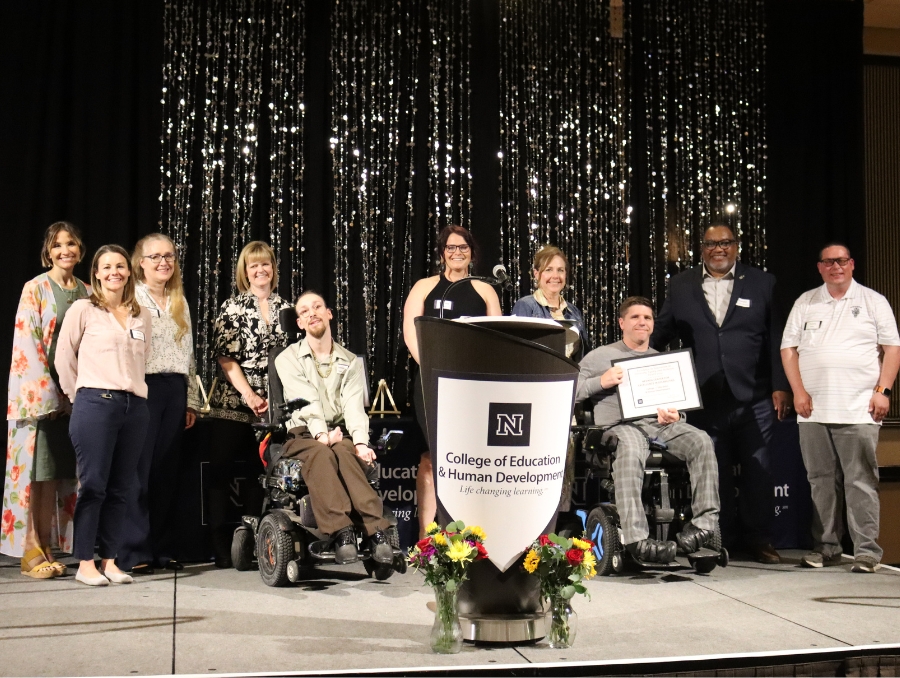Getting "Renovated" was Walter Winchell's euphemism for getting a divorce in Reno during the city's heyday as the "divorce capital of the world." It was known for its high profile celebrity divorces, but people of all backgrounds from across the globe got divorces in Reno during its nearly 60 years in the divorce trade.
Project organizers of an extensive multimedia online exhibit about Reno's 20th century divorce trade from the University of Nevada, Reno's Special Collections Department are interested in speaking with anyone with firsthand knowledge about traveling to Reno to get a divorce. The divorce may have been their own or that of a close friend or relative. Others who may have firsthand knowledge of various aspects of the divorce process and the culture it created in the community are also encouraged to share their stories.
"In just four years, from 1931 to 1934, people from 48 states, 32 foreign countries and Alaska and Hawaii, which were not yet states, got divorces in Reno," Mella Harmon, historian and project co-curator, said. "Recognition about Reno's divorce trade entered the national consciousness in such a way that nearly everyone understood what it meant if people said they were going to Reno." Harmon is an adjunct assistant professor in the University's Department of Anthropology in the College of Liberal Arts and recognized expert on Reno's divorce trade.
"Reno changed the national attitude about divorce," Donnelyn Curtis, head of Special Collections and project co-curator, said. "We're finding a feeling of liberation from the letters of women we have in our collections."
By repeatedly passing legislation shortening the time required to establish state residency-from six months to three months and, in 1931, to six weeks-Nevada's lawmakers encouraged what was known as the migratory divorce. Estranged husbands and wives traveled to Nevada to establish residency and take advantage of the state's lenient divorce laws. Within years of its first high-profile divorce in 1906, Reno gained its nickname of "divorce capital of the world."
The ease and popularity of the Reno divorce helped establish greater rights for women and hastened the acceptance of divorce in American society. By the 1960s, other states had loosened their own divorce laws, rendering the migratory divorce unnecessary.
Nevada's divorce laws provided a unique cornerstone for Reno's cultural and economic development, helping to shape the city's identity. A fundamental component of the tourism industry, the divorce trade influenced the development of housing patterns, commerce, society and entertainment.
"Many people may live in Reno and not even know the divorce trade existed as an industry or cultural phenomenon that shaped this community," Curtis said. "If people understand about the city's history, it might help explain some things about Reno today. For instance, there were many houses built with what we would call mother-in-law apartments, but they were really designed as divorce apartments.
"Even libraries were influenced," Curtis said. "Books were often selected based upon requests from people here to get a divorce." While most divorce-seekers returned home after receiving their decrees, many chose to remain in Nevada, producing a lasting impact on the community.
Once completed, the online exhibit will be the most thorough and multi-faceted portrayal of Reno's divorce industry in any format. Scheduled for completion in July 2015, the project is supported by a $79,500 Library Services and Technology Act grant funded by the federal institute of Museum and Library Services that was awarded Special Collections by the Nevada State Library and Archives.
In addition to personal stories, researchers will review essays, oral histories, novels, postcards, newspaper and magazine articles, and Hollywood films to include in the digitized project. Historian Alicia Barber will serve as project consultant and advisor. Anyone willing to share his or her story is invited to contact Mella Harmon at mellah@unr.edu or 775-682-5640.
NevadaToday











